Mum counts the cost of illegally traded medication
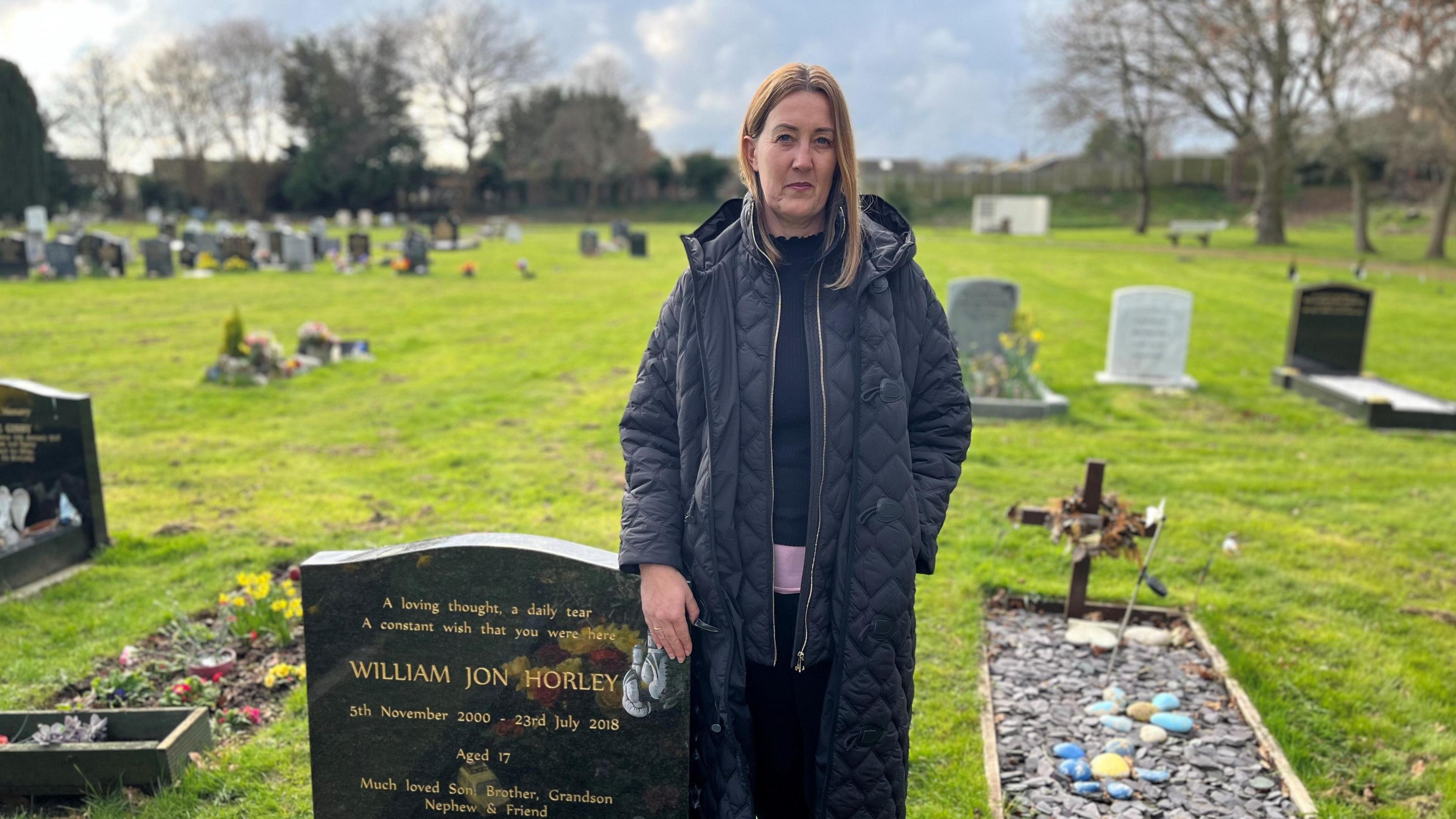
Kim Webster now gives talks to warn children about the danger after the death of her son
- Published
A Kent woman, whose son died after taking a drug bought online, is warning about the dangers of buying fake or unlicensed medicines from bogus websites and the dark web.
More than 50 million doses of illegally traded medicines have been seized in the UK in the last five years, according to new figures obtained by the BBC.
Kim Webster's 17-year-old son William Horley died in 2018 after taking prescription painkiller Tramadol recreationally with a friend.
Ms Webster from Herne Bay, says her son "died and his friend didn't - we will never know why".
The seizures between 2019 and 2023 include unlicensed painkillers, anti-anxiety medication, slimming pills and drugs for erectile dysfunction.
Criminal gangs sell medicines illegally through websites designed to look like legitimate pharmacies.
According to a government campaign, external, buying from these websites also increases the risk of being ripped off through credit card fraud or having your identity stolen.
The Medicines and Healthcare products Regulatory Agency (MHRA) said the 50 million doses seized had a street value of up to £70 million.
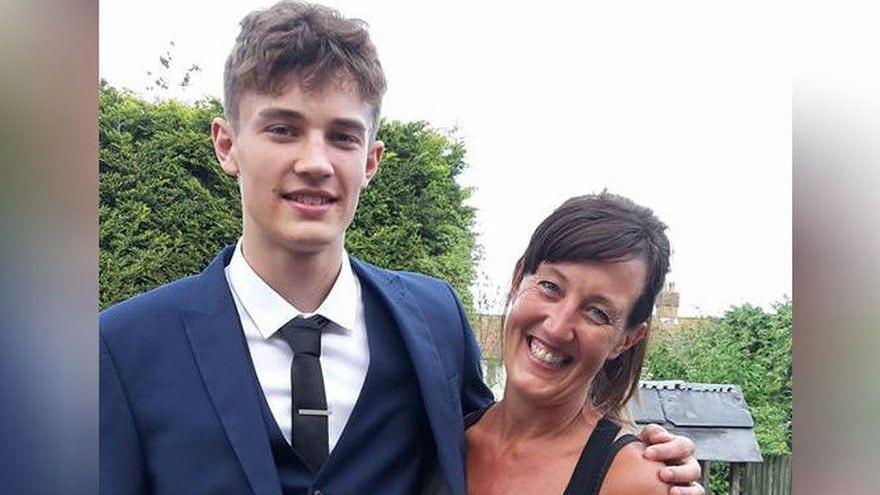
Kim Webster's son, William Horley, died aged 17 after taking Tramadol that was bought online
Ms Webster, who gives talks in schools for the Kenward Trust, a charity that supports people with addictions, said her son had taken a "gamble" by taking the painkiller that was bought online.
"It just shows it's the flip of a coin, one of your friends could take a pill and be fine, but you could take it and have dangerous consequences," she said.
She said that some people become dependent on medication and turn to buying it illegally.
"They can become addicted to opioids, but it's so easy to buy drugs online and they get delivered straight to your door."
BBC South East used the Freedom of Information Act to ask for the number of unlicensed and falsified medicines seized by the MHRA in conjunction with law enforcement agencies.
The items were detected at ports and postal hubs, along with inland seizures.
The MHRA said last year it disrupted more than 12,000 illegally trading websites.
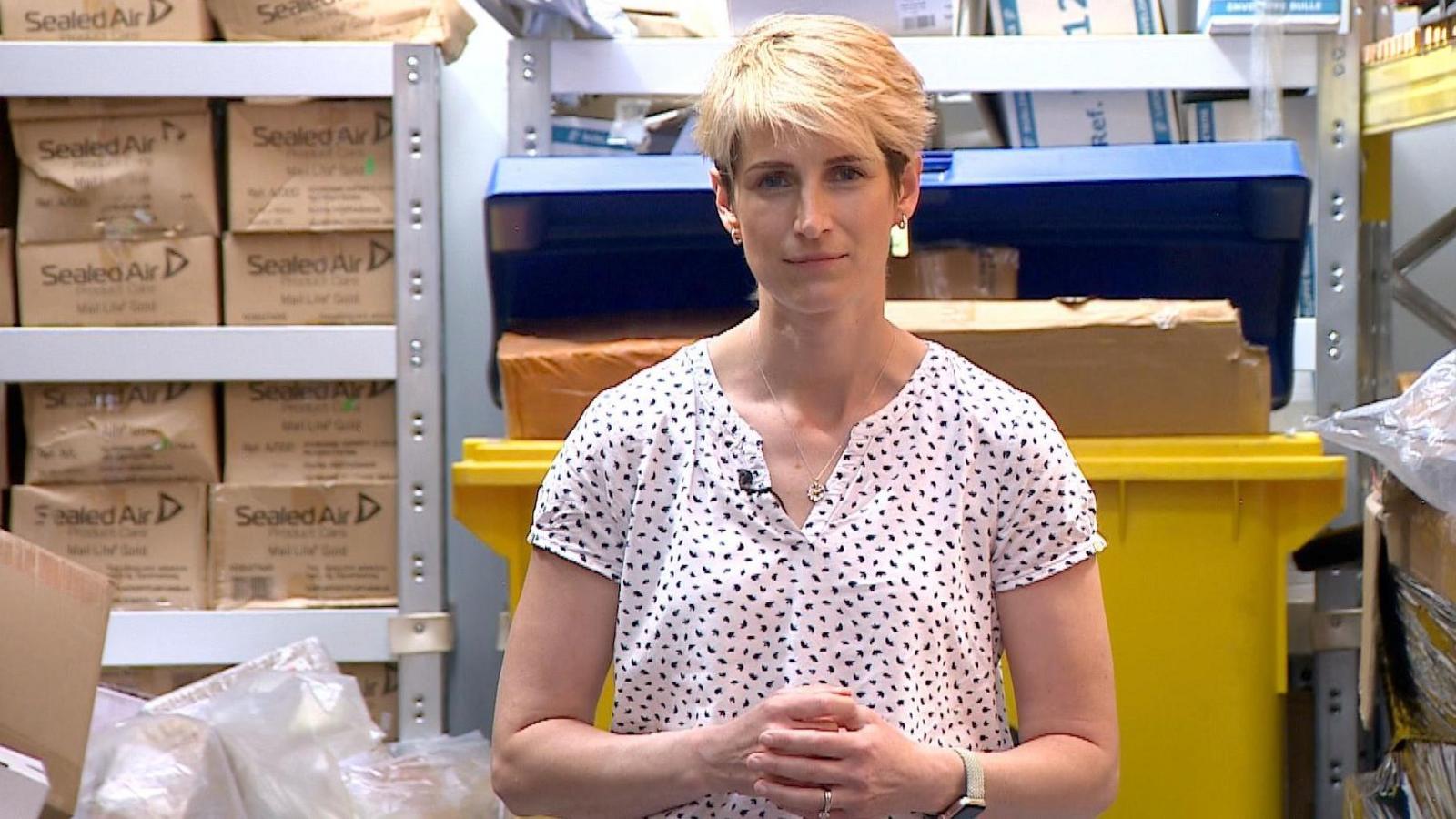
BBC South East reporter Fiona Irving at a secure location where the seized drugs are stored
The MHRA said the biggest challenge was from medicines that are unlicensed or unapproved for use in the UK, which are often smuggled in across borders.
They said criminal gangs illegally selling authorised prescription drugs was another threat, along with a much smaller trade in counterfeit medicines.
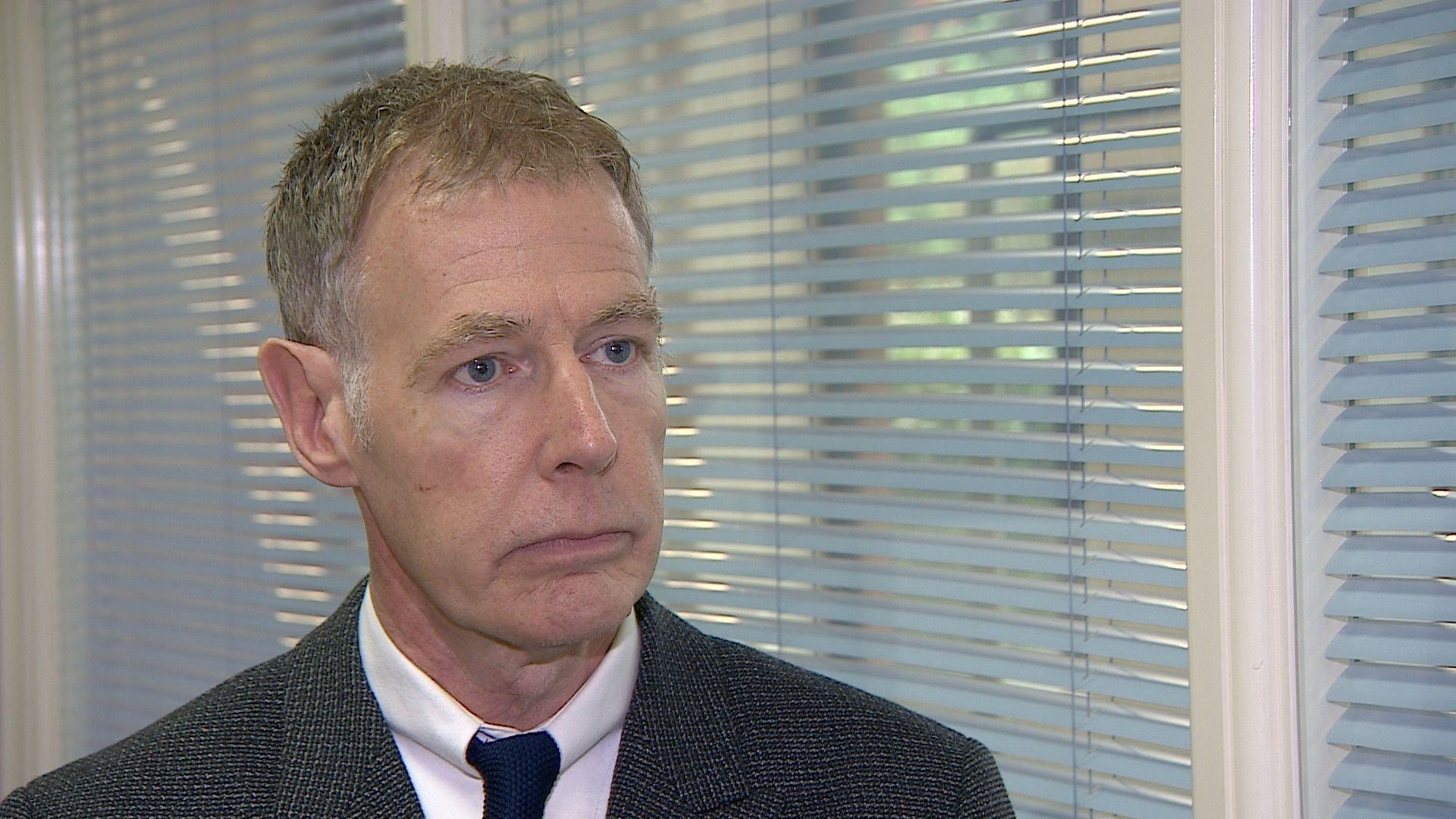
Andy Morling from the MHRA says they're seizing more illegally traded medicines
Andy Morling, MHRA deputy director (criminal enforcement), said buying medication illegally was like "Russian roulette" as you "never know what you are going to get".
He said: "So if you buy a product that’s been counterfeited, it could have anything within it, any active ingredient, or it could have a highly toxic substance within it."
He said some people had started buying drugs online during the pandemic.
"We are certainly seizing more products, but there is no firm base line to establish whether this is a growing threat or we're better at finding them," he added.
"Not only are they potentially funding other forms of organised crime through this, but they're making themselves vulnerable by sharing their credit card details.
"The product they get, there is absolutely no guarantee that it is authentic or effective and it could even be extremely harmful."
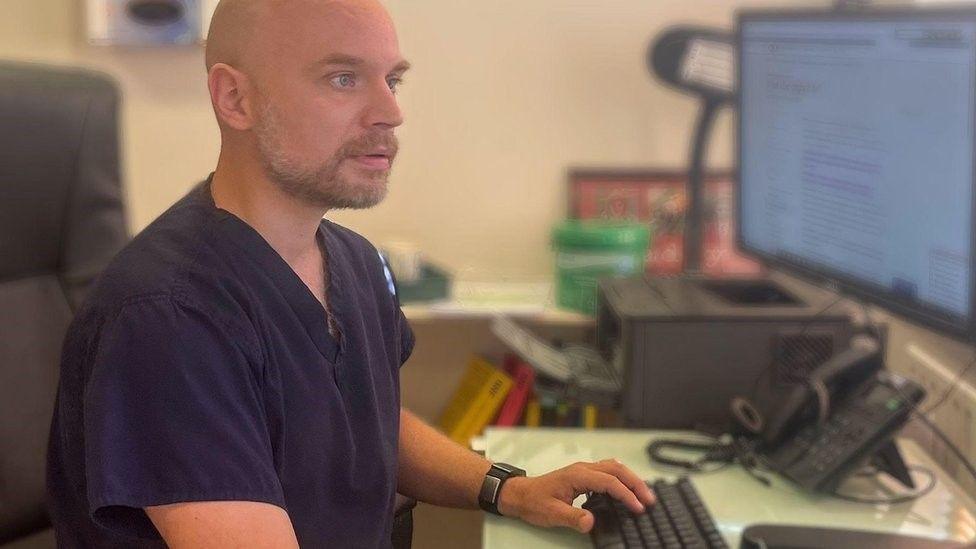
Dr David Triska says some patients are buying online because they're reluctant to see their GP about certain conditions
Dr David Triska, a GP in Surrey, said people were "looking elsewhere to get value for money" and "unfortunately, sometimes catastrophic events occur as a result".
Dr Triska suspected some patients were also reluctant to speak to their doctor about certain medications.
"Erectile dysfunction drugs are relatively expensive if you try to buy them over the counter, but the most common thing I find is that people are too embarrassed to see their doctor and perhaps they don't realise these products are widely available," he added.
The Royal Pharmaceutical Society is warning the public to check that any medicines bought online are from reputable websites.
Director Laura Wilson said: "Medicines are not regular consumer items which we are used to buying online.
"If you use the internet to buy medicines make sure you do so from a regulated site, identified by the GPhC green internet pharmacy logo."
Follow BBC Kent on Facebook, external, on X, external, and on Instagram, external. Send your story ideas to southeasttoday@bbc.co.uk, external or WhatsApp us on 08081 002250.
Related stories
- Published24 August 2022
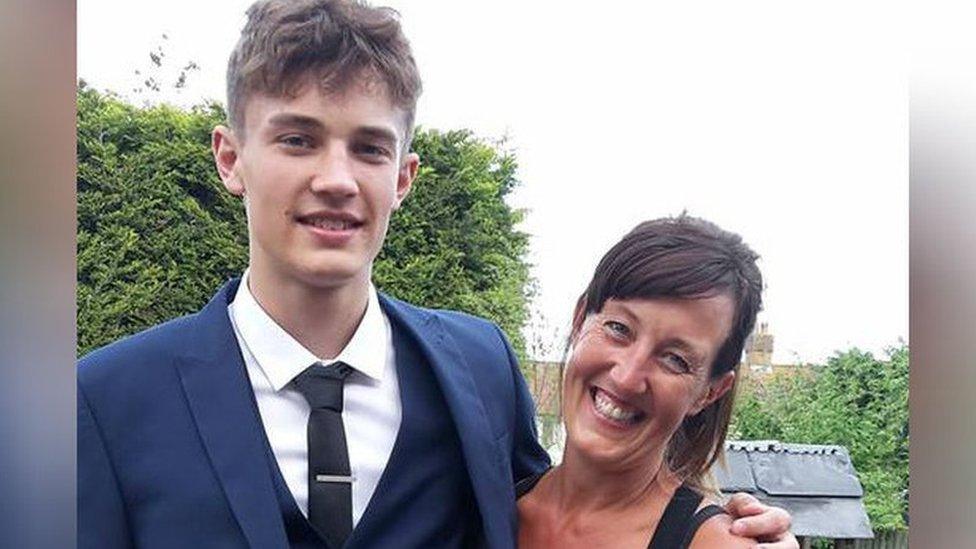
- Published18 July 2023